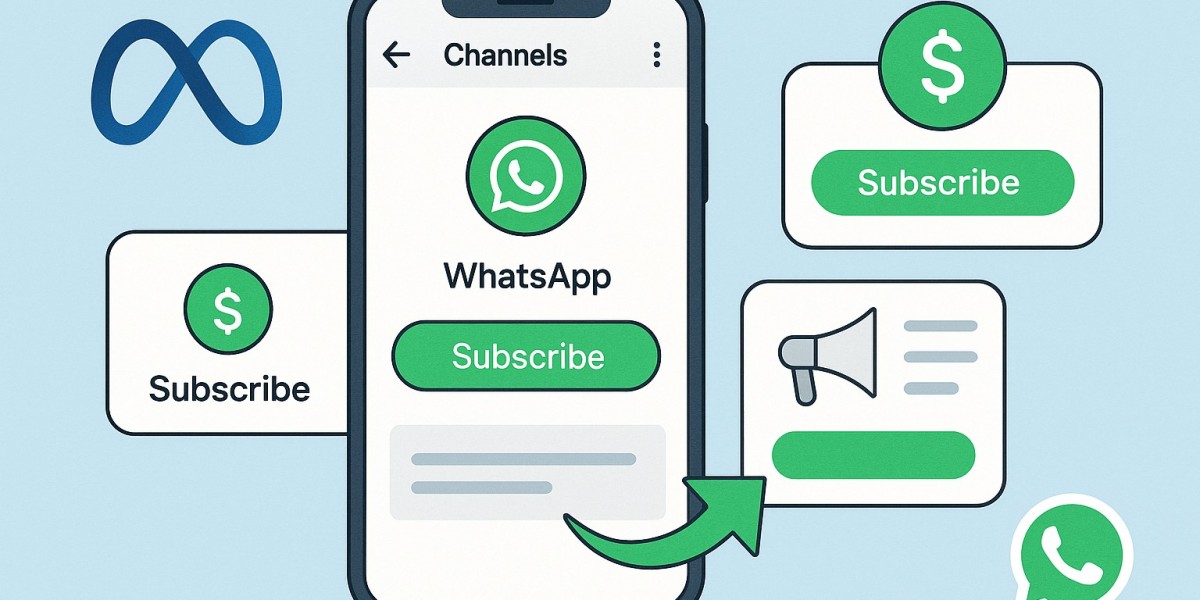WhatsApp recently rolled out a major update to its popular platform, bringing in promoted channels, ads in Status, and paid whatsapp channel subscriptions, all designed to help businesses grow and users explore more. This change marks a significant shift from WhatsApp’s long-standing ad-free philosophy—yet it's done thoughtfully to preserve the core user experience. Let’s dive into what’s new, why it matters, and how users and businesses can benefit.
A New Way to Discover Businesses
WhatsApp’s Updates tab—home to Status and Channels—is now the hub for discovery and monetization. According to Meta, 1.5 billion people visit this tab daily. Now, businesses and creators can be found more easily through:
Promoted Channels in the directory
Ads in Status, similar to Stories on other platforms
Paid subscriptions for exclusive Channel content
By focusing on the Updates tab, WhatsApp avoids disrupting users’ private chats while creating new opportunities for monetization.
How It Works for Businesses
Promoted Channels
Admins can pay to boost their Channels, increasing visibility in the directory. This is ideal for small businesses, news outlets, or public figures looking to grow their audience.Ads in Status
Business ads now appear between Status updates from friends. These clickable ads allow users to initiate chats directly with the business.Channel Subscriptions
Creators and businesses can offer premium content through subscription-based Channels, giving interested users exclusive updates and perks.
All of these features are confined to the Updates tab—private chats, calls, and group messages remain untouched and end-to-end encrypted.
Built with Privacy in Mind
WhatsApp's top priority has always been user privacy, and this update reinforces that commitment. No chat content, phone numbers, or group memberships will be used for targeting ads. Instead, ads rely on basic info like country, language, channel follows, and chat activity on the Updates tab. Users who link their WhatsApp to Meta’s Accounts Center may see more tailored ads based on cross-platform preferences from Facebook or Instagram.
WhatsApp explicitly states it will never sell or share phone numbers with advertisers, and personal conversations remain private..
Why Now? The Business Case
Meta is exploring ways to monetize WhatsApp's massive user base—nearly 3 billion monthly users. Channels and Status draw significant engagement: the Updates tab alone serves 1.5 billion daily users.. This creates a valuable chance to support businesses and generate ad revenue without disrupting the chat experience, which relies heavily on user trust.
Meta analyst predictions suggest these features could help WhatsApp earn $5–10 billion annually within a few years. It’s a revenue-expanding move that sidesteps regulatory issues by avoiding ads in private chats.
Mixed Reaction from Users
News of ads in WhatsApp has sparked both excitement and concern. Some users decry the shift as a betrayal, citing WhatsApp’s promise to remain ad-free. Others appreciate that personal chats and encryption remain intact.
Privacy advocates remain watchful. European regulators are reviewing the use of data from Facebook and Instagram under GDPR rules, especially regarding consent from the Accounts Center integration. WhatsApp counters these concerns by emphasizing transparent data usage and no intrusion into core messaging.
What Users Can Do
If you just chat with friends, your experience won’t change—ads are only in the Updates tab.
Prefer not to see ads or subscriptions? You can disable the Updates tab in settings if desired.
Curious about new Channels or promotions? This update makes it easier to discover businesses, news outlets, and creators, and engage with them directly. Businesses can start using promoted options now; worldwide rollout will continue over the coming months.
Final Thoughts
WhatsApp’s introduction of promoted channels reflects a careful balancing act—combining user experience with business growth. By placing ads and promotions in the Updates tab, WhatsApp avoids intruding on private conversations while opening new doors for business engagement. If you’re a user who values privacy, your core messaging remains secure and untouched. For brands and creators, this update offers a powerful new tool to connect with audiences on a platform they already trust.
The success of this change will depend on how WhatsApp manages ad placement, data transparency, and user feedback. If done right, this could redefine how businesses and users connect inside one of the world’s most popular communication apps.








